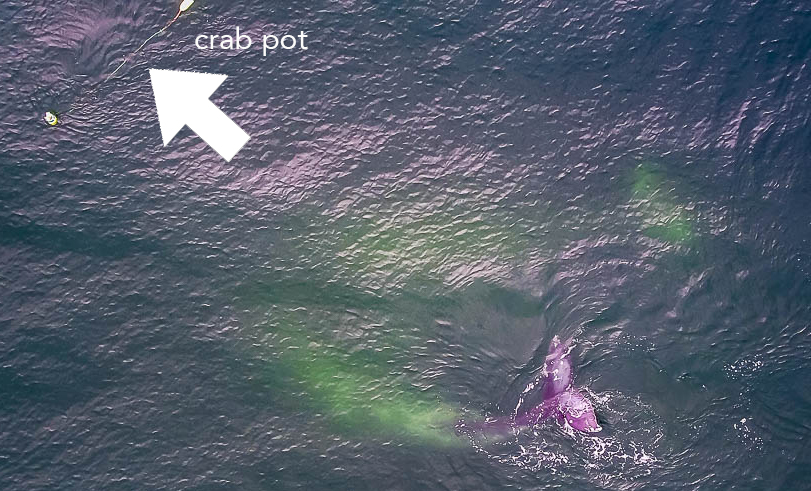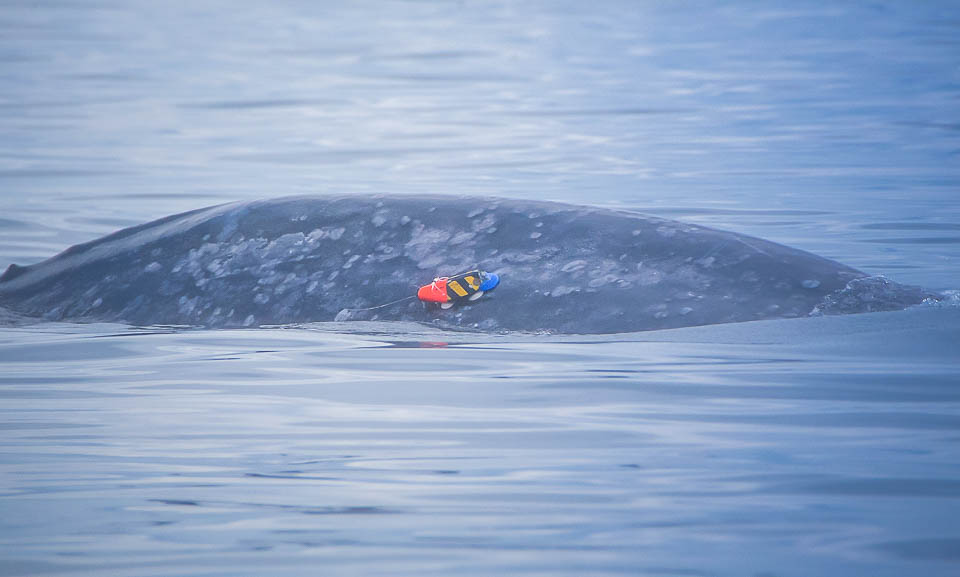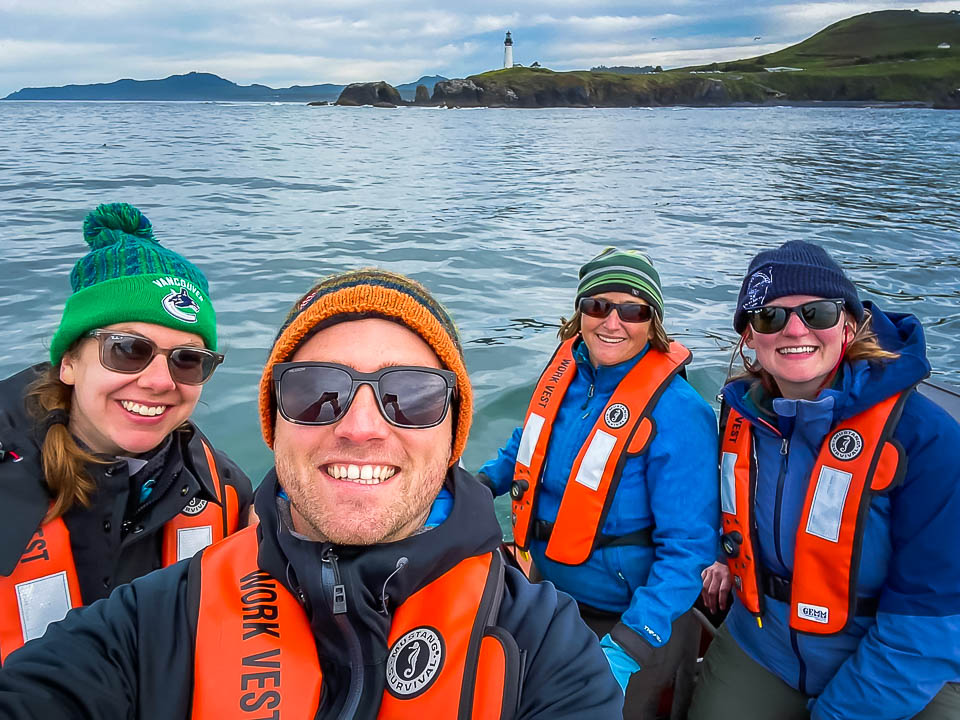Grey whales face many threats ranging from entanglements and ship strikes, to loss of habitat and reduced prey availability. Researchers are collecting data this summer needed to quantify and mitigate these threats.
When people think of whales in the Pacific Northwest, they usually think about killer whales long before they think about a special group of grey whales that spends the summer feeding along the coast of Oregon, Washington, and British Columbia instead of going to the Arctic with the rest of the population.
This unique group of grey whales is known as the Pacific Coast Feeding Group (PCFG). It is a small population of about 230 individuals that have been designated as endangered in Canada by COSEWIC (Committee on the Status of Endangered Wildlife in Canada). The whales face many threats ranging from entanglements and ship strikes to loss of habitat and reduced prey availability.

Two PCFG grey whales feeding close to crab pots, lines and buoys (top left). The crab pots pose an entanglement risk to grey whales, one of the many threats faced by the PCFG grey whales in their summer range. (Courtesy of the GEMM Lab; Permit No. 21678)
MSc student Kate Colson is studying the foraging behaviours of PCFG grey whales to determine how much energy they need. Determining the food requirements of PCFG grey whales is needed to quantify and mitigate the conservation threats facing grey whales.

A suction cup tag on a PCFG grey whale that has sensors that collects data needed to determine the energetic cost of different grey whale behaviours. (Courtesy of the GEMM Lab; Permit No. 21678)
Kate is using biologging tags that are placed on the whales with suction cups to record video and movement data to calculate the energy costs of different behaviours. These suction cup tags work like a Fitbit does for humans. The tag data can show when the whale is travelling or when the whale is feeding, just like a Fitbit worn can tell if a person is sitting or walking. And the biologger also stores the same information needed to determine how many calories are burned each day, just like a Fitbit.

Kate’s first day of field work for the 2022 season with members of the GEMM Lab field team. From left to right: Kate Colson, KC Bierlich, Leigh Torres, and Lisa Hildebrand. (Courtesy of the GEMM Lab)
The opportunity to work and learn with the GEMM Lab team is giving Kate a better understanding of PCFG grey whale behaviour that will benefit her analysis of energy expenditure. Spending time with the grey whales on the water is helping her to visualize and better interpret patterns in the biologging data, and ensures that her model outputs are grounded in the reality of PCFG grey whale ecology.
Kate would like to acknowledge her co-supervisor Dr. Leigh Torres and the GEMM Lab team for hosting her this summer and teaching her the ropes of grey whale field work. She also thanks her co-supervisor Dr. Andrew Trites and Pamela Rosenbaum at MMRU for supporting her visit to Hatfield Marine Science Center for the 2022 field season.
Kate Colson is a Graduate Student at University of British Columbia’s MMRU
